Agriculture & Environment
Makerere Hosts Climate Adaptation workshop: Calls for Action to Mitigate Climate Change Threats to Agricultural Sector
Published
1 year agoon
By
Jane Anyango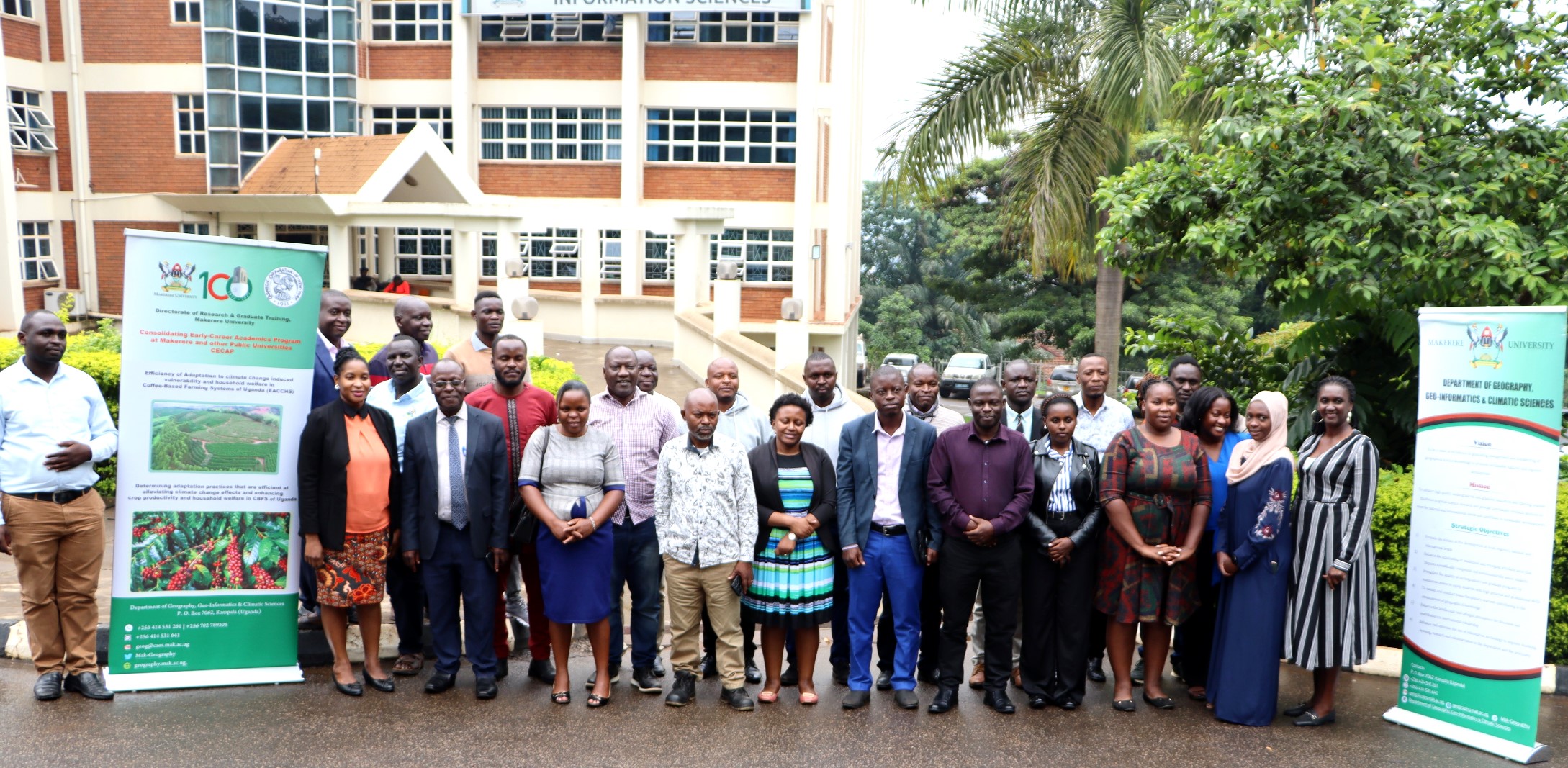
Kampala, 19th December 2024: The Department of Geography, Geo-informatics, and Climatic Sciences at Makerere University, in collaboration with the Department of Geography at Kyambogo University, held a workshop to disseminate research findings from three climate adaptation and mitigation projects funded by the Regional Universities Forum for Capacity Building in Agriculture (RUFORUM), RAINCA, WASCAL, Akademiya2063, and the Carnegie Corporation of New York under the CECAP Program.
The workshop, which took place on 19th December 2024, at the GIS Lab of Makerere University, focused on three key projects: Land Use Management & Artificial Intelligence for Crop Production, Land Use & Carbon Stocks, and Adaptation to Climate Change Induced Vulnerability. The goal of the workshop was to engage in-country stakeholders on interpreting the research findings and strategically applying them to mitigate the impact of climate change on Uganda’s agricultural sector across various agro-ecosystems and agro-ecological zones. Recommendations were drawn up in the form of policy briefs to guide climate adaptation efforts.
While officially opening the workshop the Dean of the School of Forestry, Environmental, and Geographical Sciences (SFEGS), Dr. Revocatus Twinomuhangi, extended a warm welcome to participants at the workshop, where he also delivered both the opening and closing remarks. In his address, Dr. Twinomuhangi commended the study’s Principal Investigator (PI) for successfully implementing the project and enhancing Makerere University‘s reputation. He expressed gratitude to the project’s partners for their collaborative efforts, as well as to the department for fostering an enabling environment for the research. Additionally, Dr. Twinomuhangi acknowledged the support of funders such as DGRT, whose contributions made the project possible.
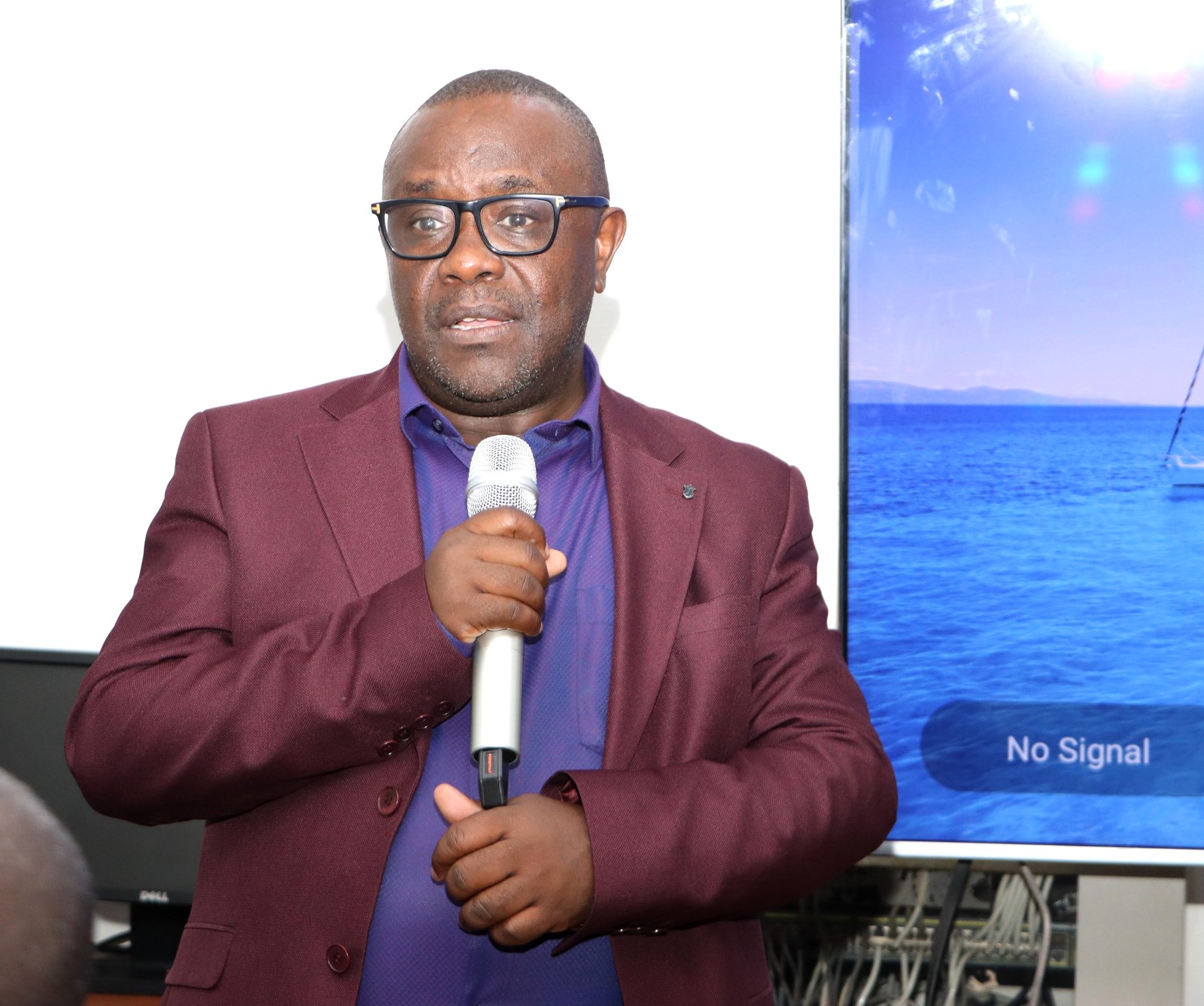
The Dean thanked all the participants for their attendance, emphasizing the importance of continuing the work initiated by the project. He expressed optimism that the research would lead to publications in high-impact journals and be effectively packaged for policy and decision-making. As the workshop concluded, Dr. Twinomuhangi offered his well wishes for safe travels, a restful holiday, and a Merry Christmas, with hopes for a prosperous 2025.
Project PI Dr. Catherine Mulinde on Purpose of the Workshop:
Dr. Catherine Mulinde, Principal Investigator of the climate adaptation projects, addressed the workshop participants, outlining the purpose of the event. She emphasized that the workshop brings together three collaborative projects aimed at addressing climate change impacts on Uganda’s agricultural sector, with the involvement of Makerere University, Kyambogo University, and several funding institutions.
“The workshop encompasses three projects in one, and it’s a collaboration among the team members, the universities, and the donors,” Dr. Mulinde explained. She detailed the three projects, beginning with the Land Use Management and Artificial Intelligence for Crop Production project. This initiative focuses on modeling land productivity and management practices using artificial intelligence, supported by RUFORUM and the Responsible Artificial Intelligence Network on Climate Action in Africa (RAINCA), with funding from the International Development Research Centre (IDRC). The second project, Land Use and Carbon Stocks, examines carbon sequestration practices in various districts, including Mbale, Serere, Nakapiripiri, and Palisa, and is also supported by RUFORUM and IDRC. The third project, led by Dr. Mulinde, explores adaptation strategies for regions severely impacted by climate change, covering a broader range of areas including Mbale, Kapchorwa, Bulambuli, Luwero, Nakaseke, and Nakasongola.
Dr. Mulinde emphasized that the workshop aims to share key findings from these projects and engage stakeholders in validating and interpreting the results. “We don’t want to leave the results on the desks,” she stressed. “We want to make sure that these findings are shared with the people who can act on them in the communities.” A key goal of the workshop was to develop actionable policy recommendations, with input from local stakeholders who understand the practical aspects of implementing solutions. “You know the ‘how’ and the ‘what’ and you know where the resources are,” Dr. Mulinde said. “We want to develop recommendations that are not just theoretical, but truly implementable.”
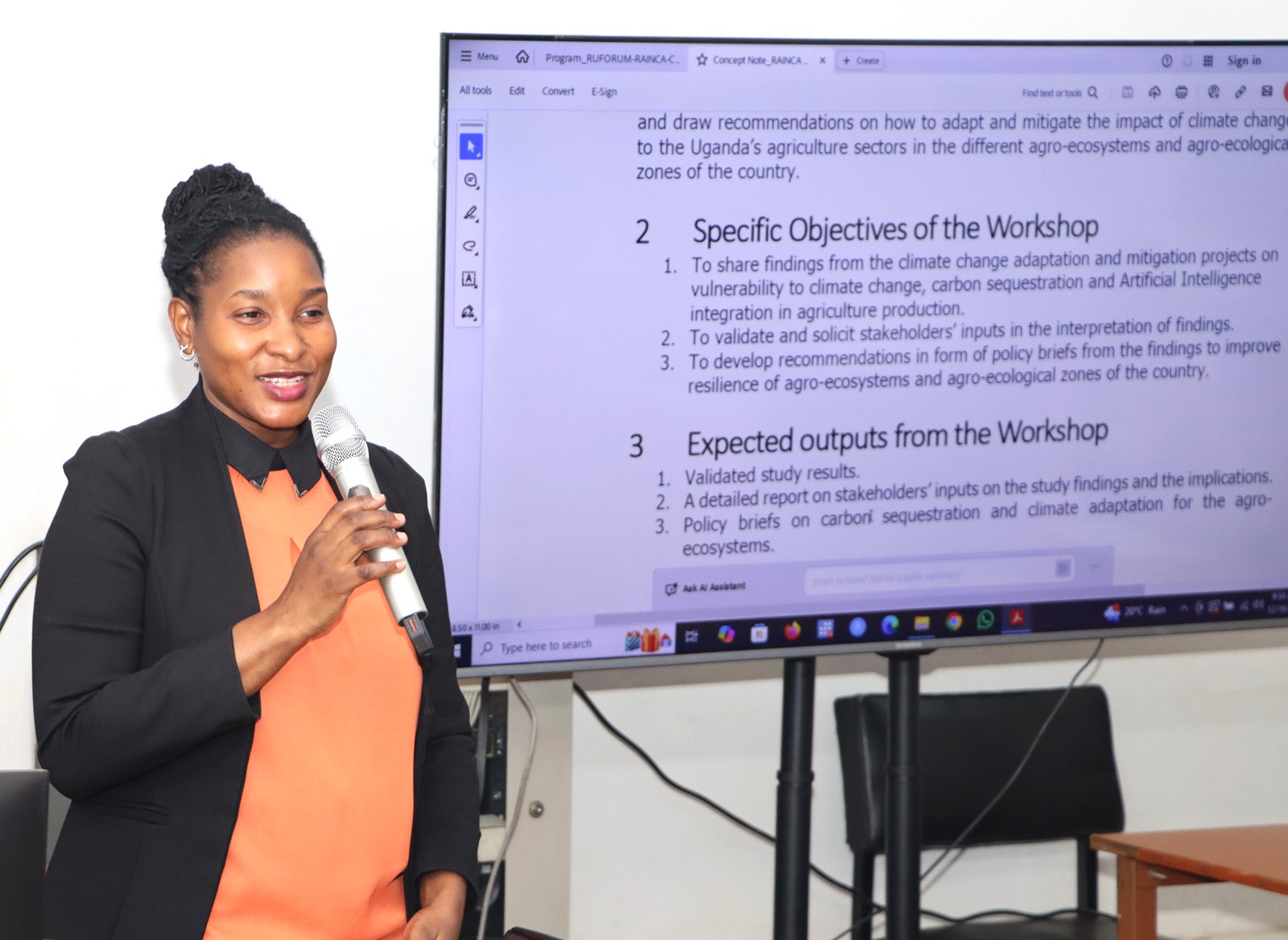
Dr. Mulinde also acknowledged the challenge of translating complex scientific concepts like artificial intelligence into locally understood terms, highlighting the importance of making the research accessible to the community. “It’s one of the challenges in academia—translating science into language that our local communities can understand,” she noted.
She concluded with an invitation to stakeholders to provide feedback on the research findings and contribute to the development of policy briefs. These documents will be used to drive climate adaptation efforts at the local level, ensuring that the research can have a lasting impact on Uganda’s agricultural resilience in the face of climate change. “By the end of the day, we expect to validate the results, address divergences, and develop policy briefs that can be shared back with your communities for further action,” Dr. Mulinde concluded.
Uganda, ranked as the 49th least ready country in terms of climate change adaptation
Uganda, ranked as the 49th least ready country in terms of climate change adaptation, faces immense challenges in securing its agricultural sector from the impacts of climate change. MAAIF Commissioner Freddie Kabango, who was present at the workshop, emphasized the pivotal role agriculture plays in Uganda’s economy, livelihoods, and national GDP. He stated, “Agriculture is at the center of Uganda’s climate change discussions because it directly impacts the livelihoods of many Ugandans. With agriculture heavily dependent on natural resources, it is highly vulnerable to climate change.”
In his presentation, Commissioner Ministry of Agriculture, Animal Industry and Fisheries Freddie Kabango discussed the diverse impacts of climate change on Uganda’s agricultural sub-sectors—crop production, livestock, and fisheries. He outlined how climate variability, manifested in extreme droughts, floods, and landslides, has already led to reduced productivity, crop destruction, and livestock losses. He further highlighted the critical importance of adaptation strategies in response to these challenges.
“Uganda is experiencing climate change variability, which is evident in extreme weather patterns. Our agriculture sector, which is primarily rain-fed, is one of the most vulnerable to these changes,” Kabango added. “Climate adaptation is crucial, and we need to protect our natural resources to secure the future of agriculture.”
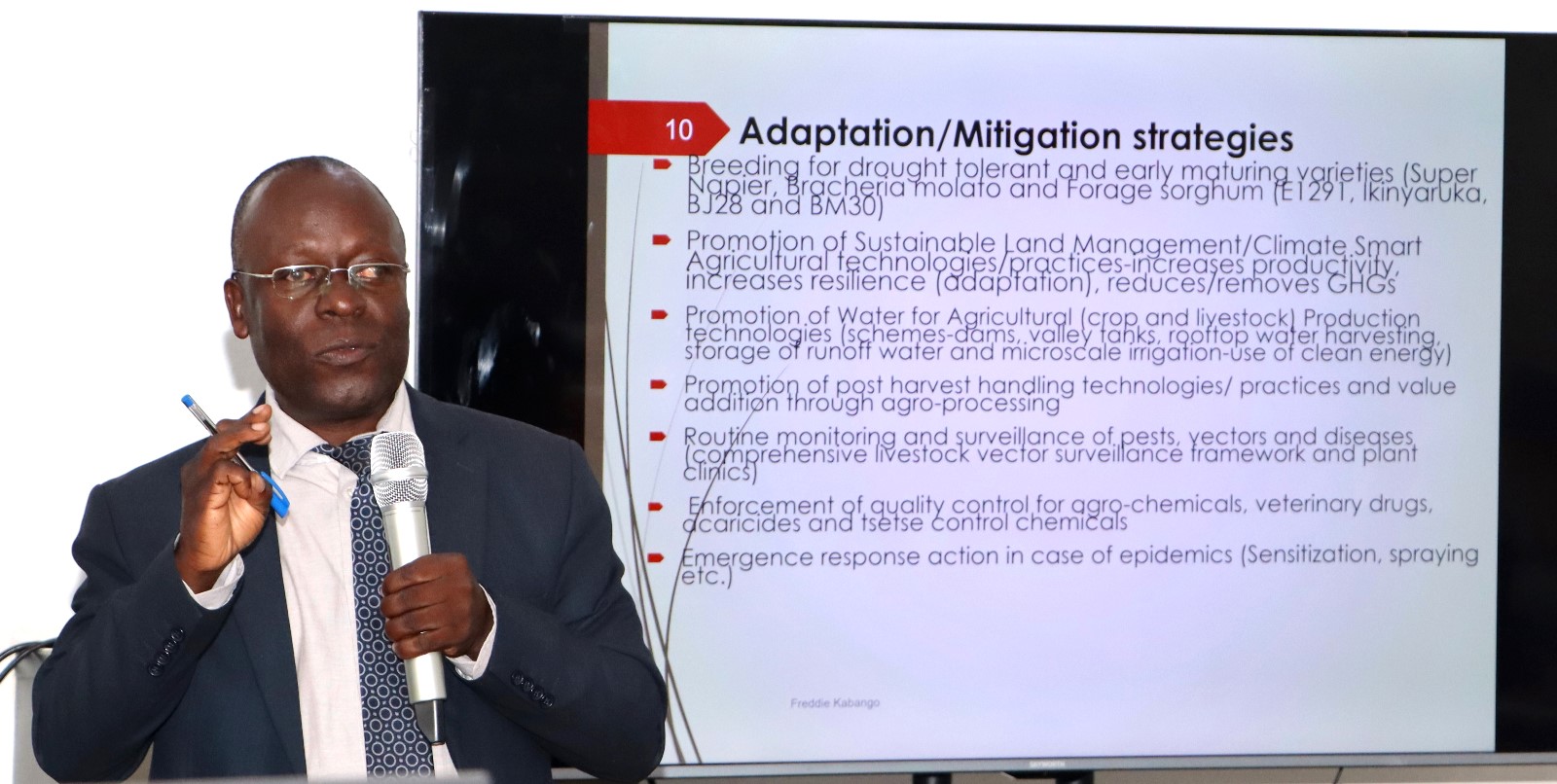
The workshop also featured a series of discussions on the strategies Uganda is pursuing to enhance climate resilience, including research and development, sustainable land management practices, and the promotion of climate-smart agricultural technologies. Kabango mentioned initiatives such as solar-powered irrigation systems and breeding for pest and disease-tolerant varieties to help mitigate the effects of climate change.
Despite Uganda’s low ranking in climate adaptation, Kabango expressed optimism that through research, policy development, and collaborative efforts, the country could strengthen its climate resilience. “While we are currently ranked as the 49th least ready country in adaptation, we are not without solutions. We are committed to increasing research and development efforts to improve the country’s preparedness,” he said.
RUFORUM Representative Hails Student AI Innovations in Predicting Crop Yields and Livestock Carbon Emissions
RUFORUM Representative Mr. Yamungu Alongo Boniface highlighted the innovative contributions of AI to climate action during his remarks at the workshop. He began by introducing RUFORUM (Regional Universities Forum for Capacity Building in Agriculture), a network of 180 universities in 40 African countries, with its headquarters based in Makerere University, Uganda. “RUFORUM started as a project funded by the Rockefeller Foundation,” he explained, recounting how it began with just 10 universities in five African countries and has since expanded significantly. “Uganda, and particularly Makerere University, has benefited greatly from the network’s growth, with many funding opportunities directed here,” he noted.
The evolution of RUFORUM was discussed, with Mr. Alongo explaining that in 2004, following the end of the Rockefeller Foundation-funded Forum for Agriculture project, the network formalized its mission as the Regional Universities Forum for Capacity Building in Agriculture. “From 10 founding universities, we now have 180 universities, covering all regions of Africa,” he shared. This growth has allowed for collaboration on numerous research projects, such as the AI for Climate Action initiative.
He described the partnership among RUFORUM, WASCAL, and Academia 2063, which secured funding from the International Development Research Centre (IDRC) to launch a research hub focused on artificial intelligence for climate action. “Makerere University applied for several grants, and though they were eligible for four, only two were granted to ensure broader continental representation,” Mr. Alongo explained.
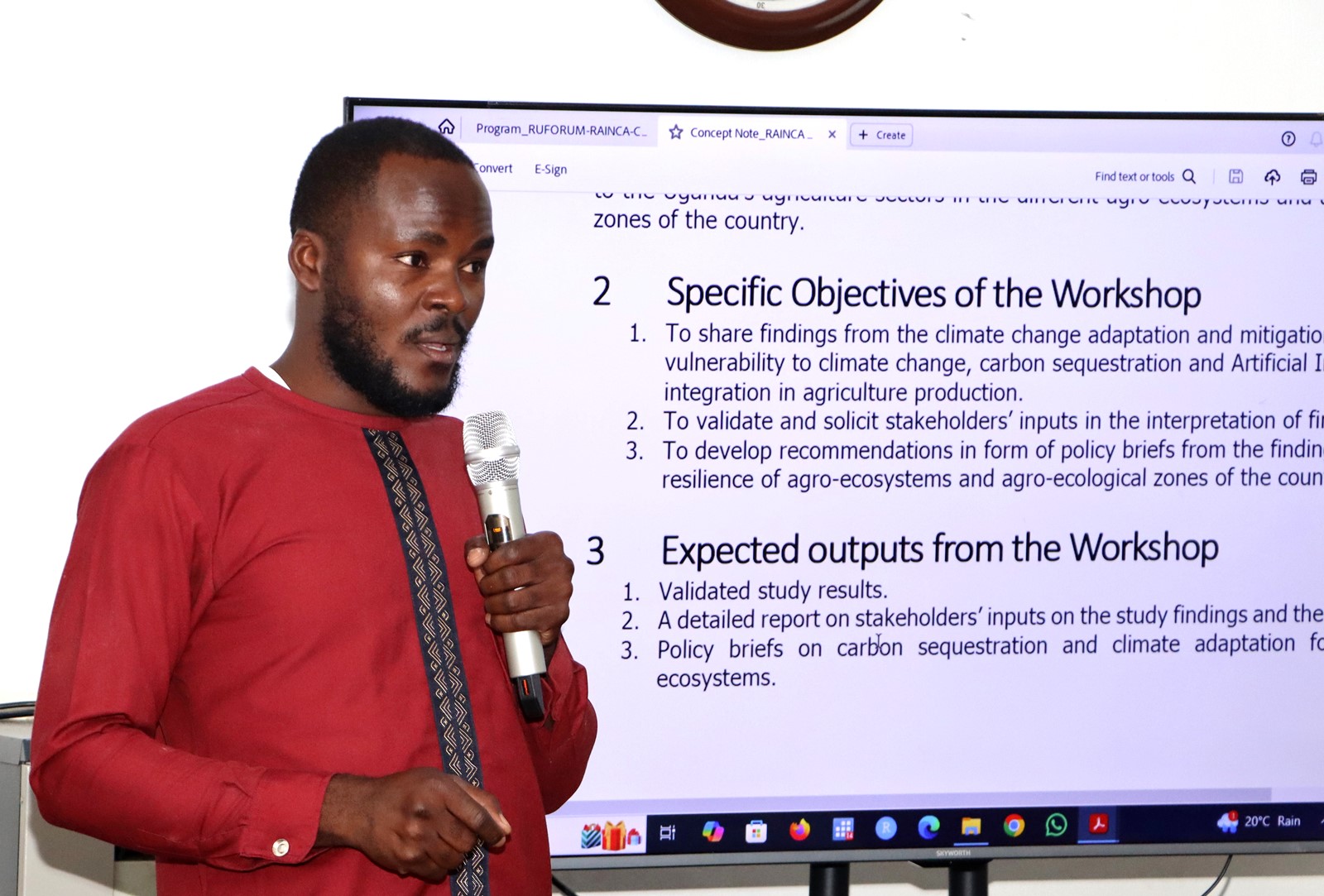
In addition to the IDRC funding, Mr. Alongo noted that RUFORUM has been involved in other projects under the Global Research Alliance (GRA), funded by the government of New Zealand, which focuses on climate change, greenhouse gas emissions, and related research. “Prof. Mkwaya and other departments at Makerere, as well as universities in Kenya and Tanzania, have also benefited from GRA funding,” he said.
Highlighting the impact of the AI projects, Mr. Alongo celebrated the success of a student who developed a crop yield prediction model that outperformed international systems. “The model was more accurate than even DISSAT, a widely recognized tool for agro-technology transfer,” he pointed out. In livestock, students developed amodel which can launch a drone to count animals and the amount of carbon stocks emitted by the animals. He stressed the importance of sharing such findings with local communities and policymakers to ensure the research is implemented effectively. “We need to make sure our findings are used by those who can take action—farmers, policymakers, and ministries,” he said.
Mr. Alongo concluded with a call to action for further collaboration. “We need to mobilize resources to bring these innovations to the field and ensure they are implemented for sustainable change,” he urged. “This workshop is just the beginning, and we must work together to make a real difference.” He also passed greetings from RUFORUM’s Executive Secretary, Prof. Patrick Okori, emphasizing his support for the project and the ongoing efforts to disseminate the findings.
Key Insights and Policy Recommendations
The workshop brought together members of academia, policy makers from government ministries and agencies and representatives from research implementing districts. Participants delved into key issues affecting the region, offering insights and recommendations that could shape future policies and research in environmental management.
Group I: Land Use and Cover
One of the major discussions in the first group focused on the changing land use patterns and their impacts on soil fertility. As communities in the region expand their agricultural activities, they face the challenge of soil degradation, which reduces crop yields. Experts emphasized the need for sustainable land management (SLM) practices to restore soil fertility and boost agricultural productivity. Agroforestry, particularly in lowland areas, was identified as a key solution, alongside wetland restoration, which has been proven to store more carbon.
Participants also suggested that promoting plant diversity in agricultural areas could help increase carbon stocks. This would contribute to the region’s efforts to combat climate change and improve environmental resilience.
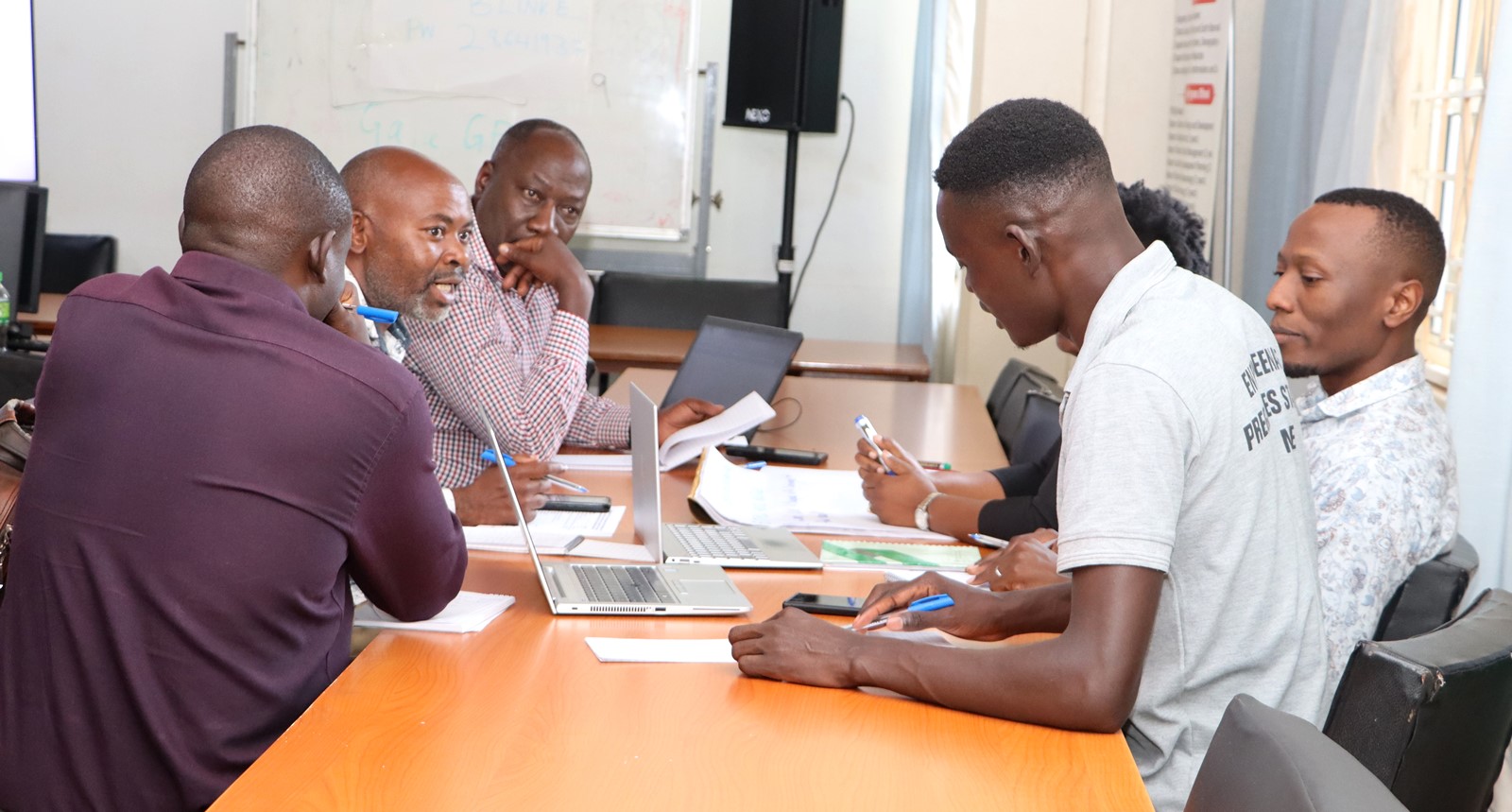
Policy recommendations from the group included prioritizing wetland restoration, promoting afforestation and forestation efforts, and enforcing stricter water management regulations. They also stressed the importance of effective urban planning and the establishment of disaster management committees at the local level to respond to climate-related challenges. Additionally, there was a call to compensate district extension workers for their role in promoting sustainable land practices.
Research topics highlighted for future manuscripts included environmental pollution, carbon stock modeling, the impacts of gender on land use and carbon stocks, and the relationship between migration, land use, and carbon storage.
Group II: Adaptation to Climate Change and Vulnerability
The second group focused on the vulnerability of communities to climate change and the need for effective adaptation strategies. A key takeaway was the importance of promoting climate-smart agriculture across all sectors, ensuring that agricultural practices are both sustainable and resilient to climate impacts. The group also called for the mainstreaming of climate change adaptation into all sector work plans and budgets, urging governments to operationalize existing policies, which have often remained underutilized.
Community sensitization was identified as a major challenge, with many local stakeholders unaware of existing climate change policies. The group recommended that efforts be made to build the capacity of both policy implementers and communities to ensure that adaptation strategies are understood and implemented effectively. Affirmative action for the most vulnerable groups, including women, the elderly, and children, was also proposed to ensure that their specific needs are addressed in climate policies.
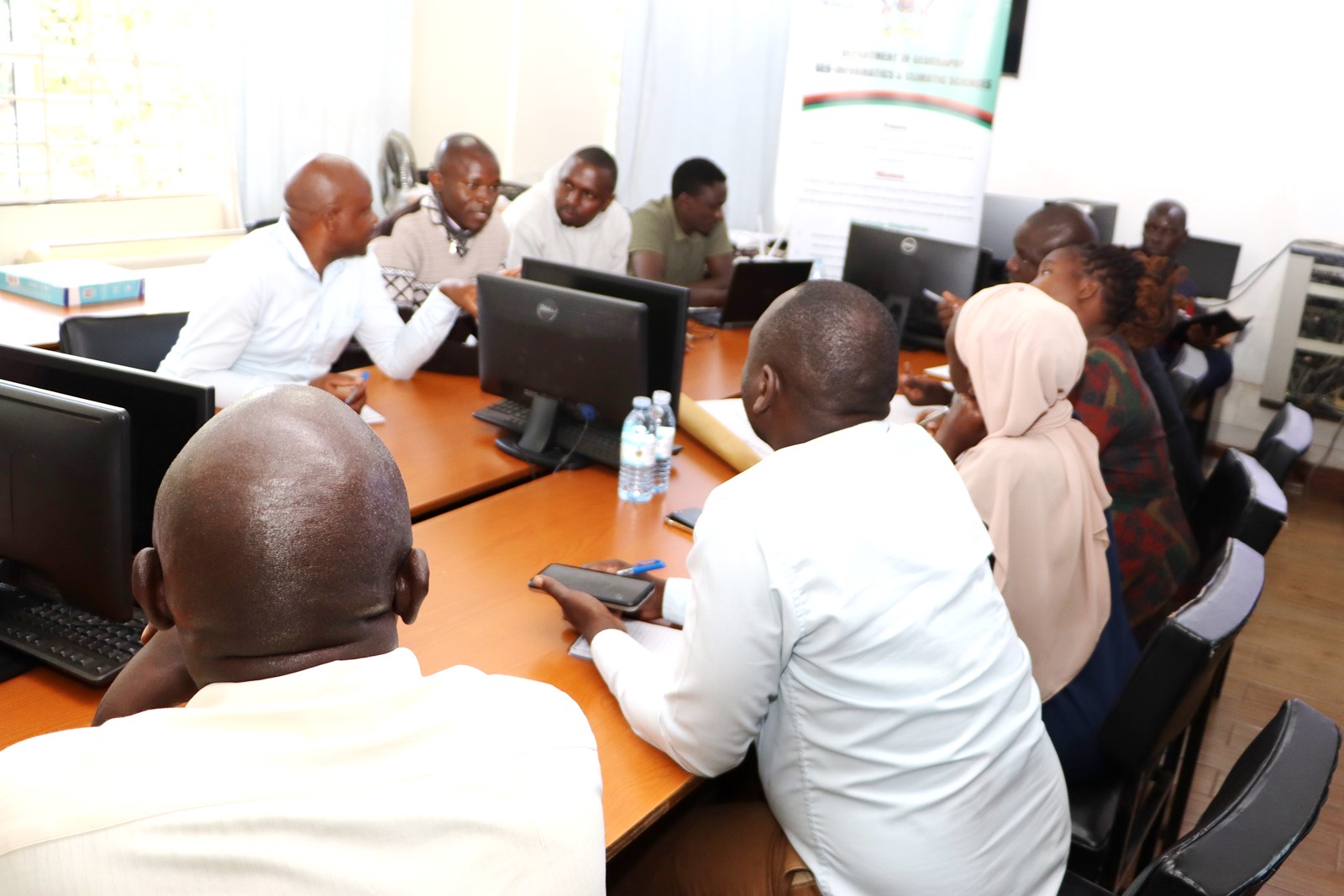
The group identified five key areas where local governments can influence policy design and implementation. These include promoting multi-stakeholder engagement, basing policies on evidence-driven research, integrating new technologies like AI into policy frameworks, and ensuring gender responsiveness and social inclusivity in national adaptation policies.
Group III: Land Management and Agricultural Practices
The third group discussed land management practices and the potential of technology to improve agricultural productivity. The group stressed the need for region-specific land management approaches, tailored to the unique challenges of different areas. They also highlighted the role of artificial intelligence (AI) in enhancing decision-making processes, particularly in precision agriculture and irrigation management. AI can provide more accurate data and predictions, helping farmers make informed decisions and optimize resource use.
Another key message was the importance of education and knowledge sharing to improve the implementation of sustainable land management practices. Participants noted that many farmers lack access to essential information, which hinders their ability to adopt better practices. Ensuring that agricultural extension services are equipped with the knowledge and tools to train farmers in new technologies was seen as a crucial step toward improving productivity.
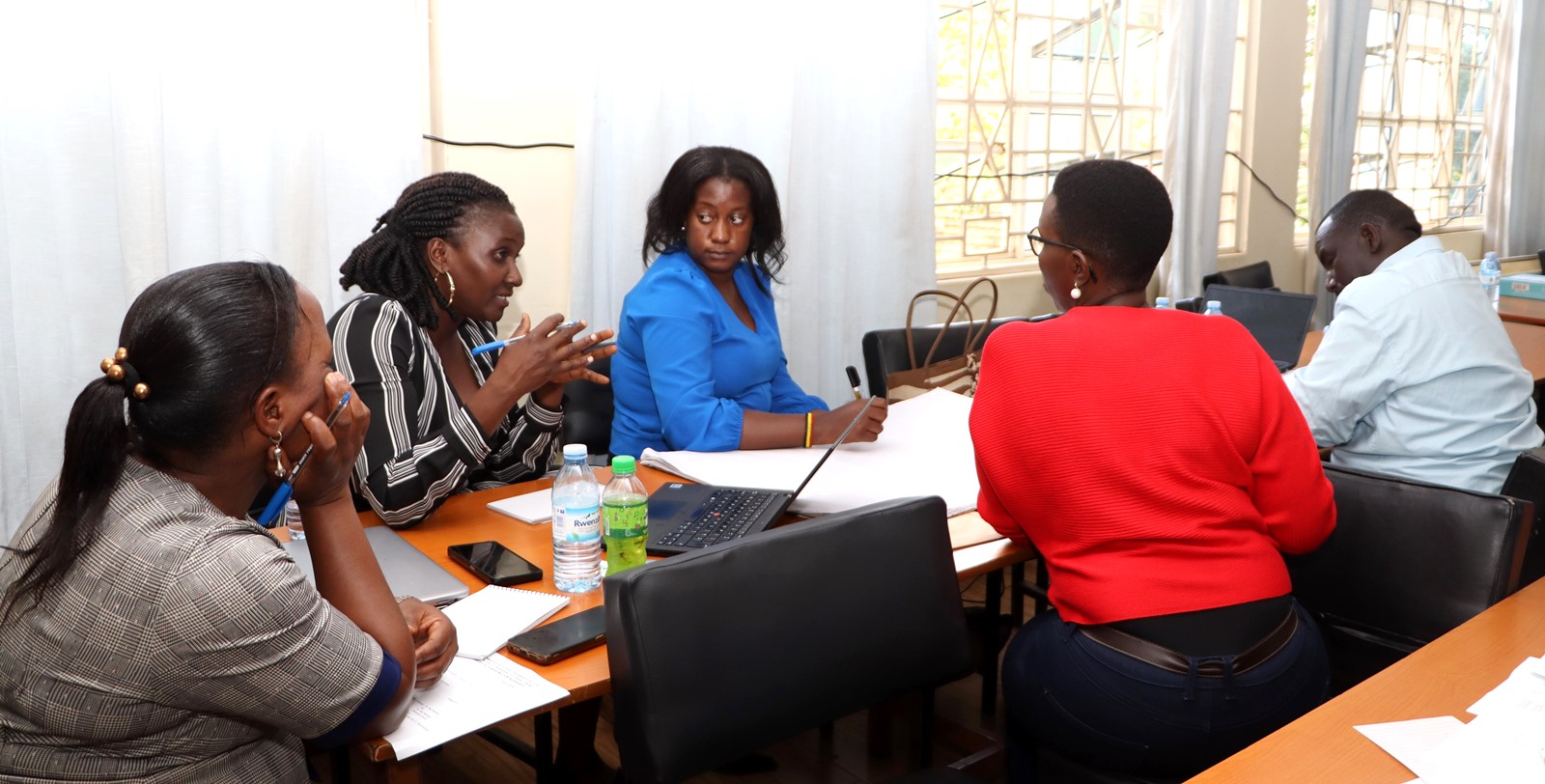
Policy recommendations from this group included enhancing the existing National Agriculture Adaptation Plans (NAPAs) to make them more region-specific and improving the integration of AI into agricultural extension services. There was also a call for the establishment of a national agriculture data infrastructure policy to support real-time data collection and forecasting, which would enable better agricultural planning and response.
Moving forward, the workshop concluded with a call to action for stakeholders to work together to implement the recommendations discussed. The importance of evidence-based policies, the integration of new technologies like AI, and the prioritization of vulnerable communities were central themes throughout the discussions. As Makerere University continues to play a critical role in addressing climate change and land management issues, the insights gained from this workshop will undoubtedly contribute to the development of more effective and sustainable policies for the future.
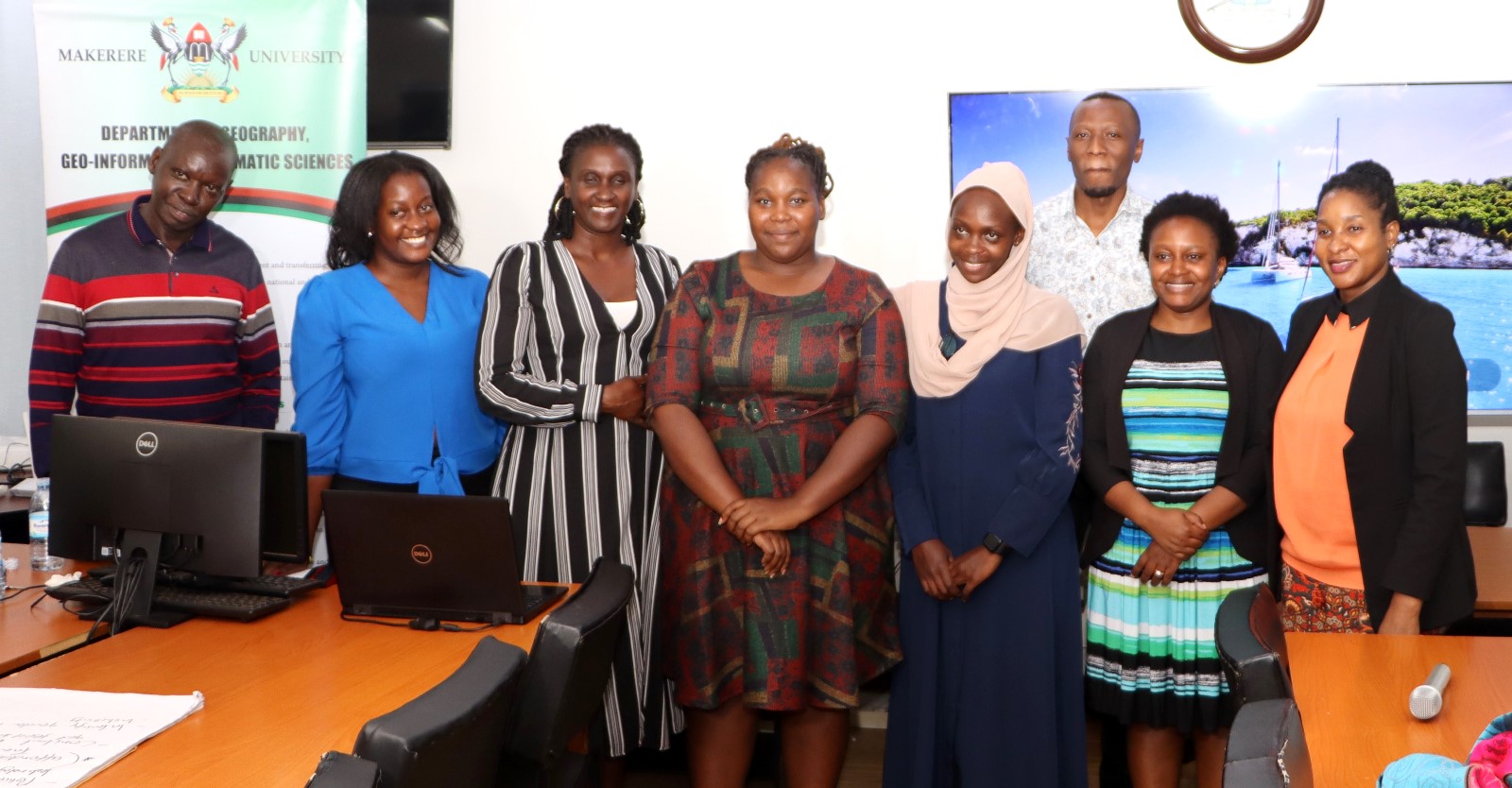
About the three Research projects
Dr. Catherine Mulinde presented three important research projects focused on addressing climate change, land use management, and agricultural productivity in Uganda.
Project 1: Carbon Stocks and Climate Change The first project, titled Effect of Changes in Land Use, Cover, and Climate on Carbon Stocks in Selected Agricultural Zones of Uganda, was led by Dr. Paul Isolo Mukwaya, with Dr. Catherine Mulinde and Dr. Geoffrey Gabiri collaborating from Makerere and Kyambogo Universities, respectively. The project’s primary objective was to assess carbon stocks in vegetation and soils in two agroecological zones, Nakapiripirit and Manafwa in Mount Elgon. The team focused on evaluating soil carbon fluxes, the impact of land cover and climate change, and the heterogeneity of environmental factors on carbon levels. Additionally, they projected future changes in carbon stocks and land use scenarios. The research team included students Elizabeth Ahumuza and Vincent Wabwire, who explored the relationship between land use, soil carbon, and meteorological drought in Karamoja. The findings from this project were shared with the community and presented at international platforms.
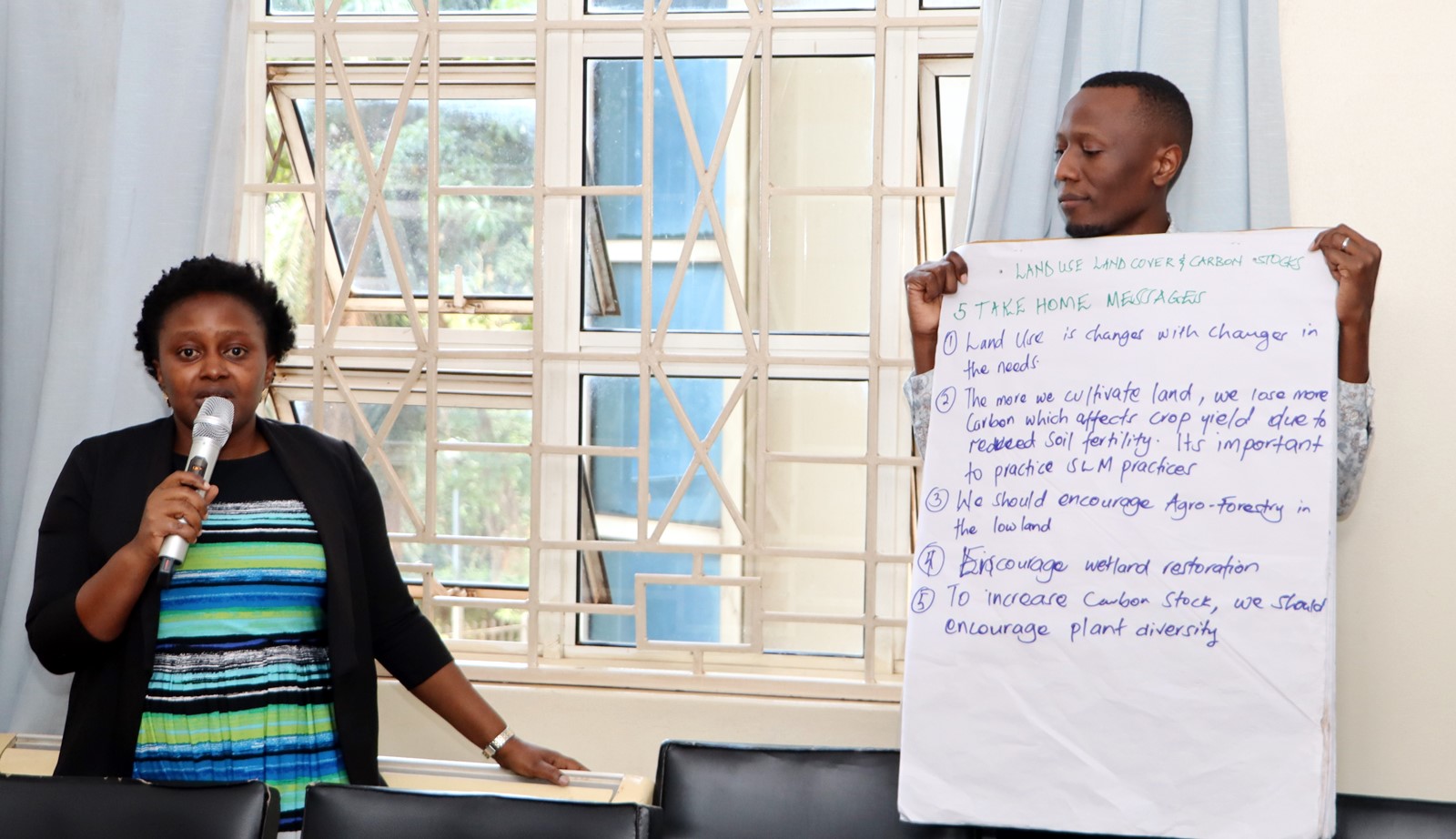
Project 2: Responsible AI for Agricultural Productivity The second project focused on the application of responsible artificial intelligence (AI) in modeling land productivity and crop yields in the face of changing climate and land use. Led by Dr. Mulinde, Dr. Paul Mukwaya, and Dr. Geoffrey Gabiri, the project aimed to explore how AI can assist smallholder farmers who are struggling with decreasing yields due to climate change. The project was conducted in the Lake Kyoga Basin, covering both the highlands (Mbale) and lowlands (Pallisa). The team used machine learning to quantify the relationship between climate change, land management practices, and crop yields, offering insights into how farmers can improve productivity. The project’s students, Irene Nekesa (Kyambogo University) and Kisakye Angela, conducted household interviews and community outreach, presenting findings at international forums, including the RUFORUM conference in Namibia. Angela’s poster was awarded the best presentation at the conference. The project highlighted the need for greater awareness and knowledge of AI in agricultural communities, as many local stakeholders struggled to interpret its potential.
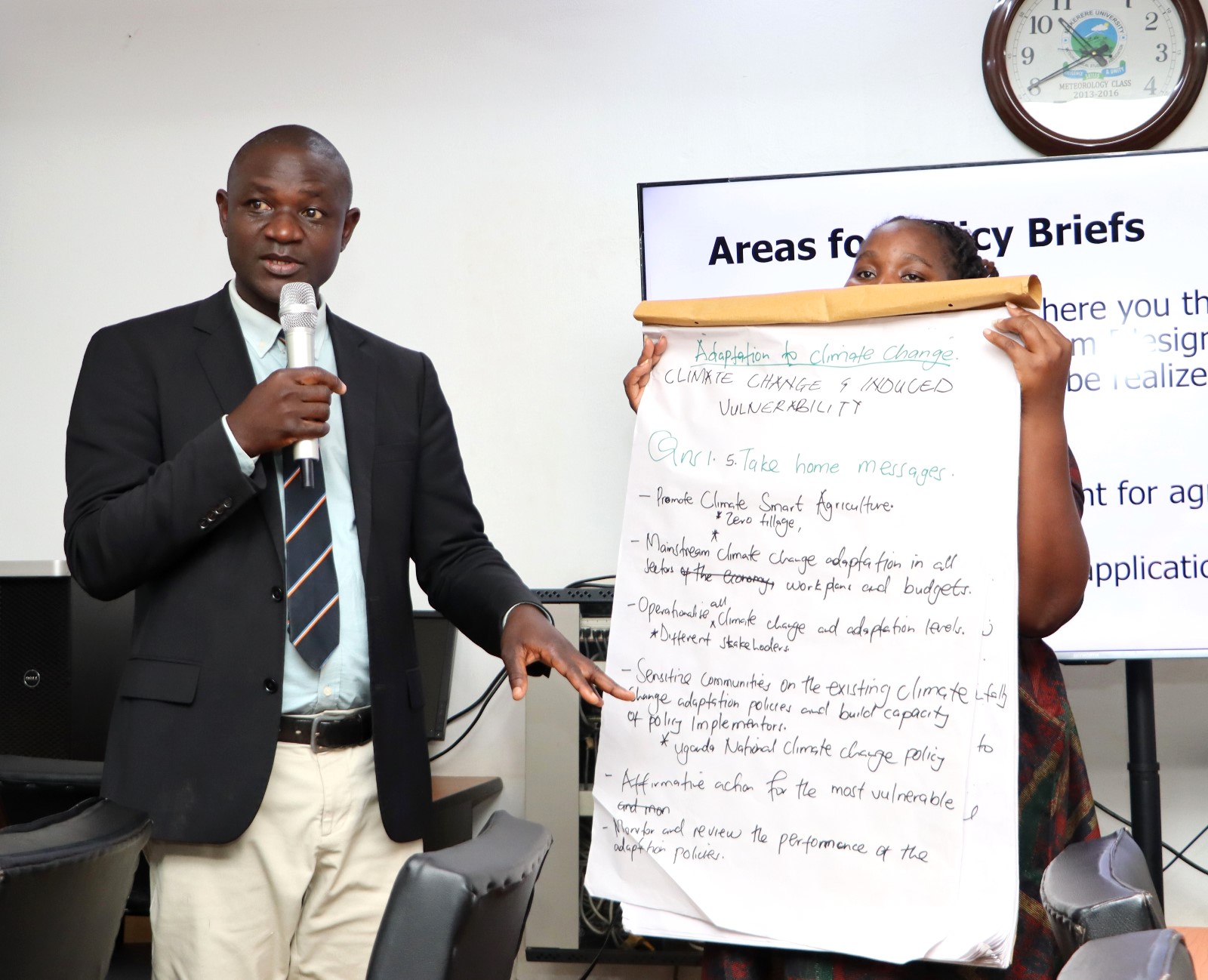
Project 3: Climate Change Adaptation in Coffee Farming Systems The third project was a postdoctoral research initiative supported by Makerere University‘s Directorate of Research and Graduate Training, focused on adaptation to climate change-induced vulnerability in coffee farming systems. Dr. Mulinde was the principal investigator, with Associate Professor Revocatus Twinomuhangi serving as the research mentor. This study, part of the CECAP program funded by the Carnegie Corporation of New York, aimed to identify the most effective adaptation practices to improve household welfare and agricultural productivity in coffee farming. The research focused on Arabica coffee in the Mount Elgon region (Kapchorwa, Bulambuli, Mbale) and Robusta coffee in the central region (Luwero, Nakaseke, Nakasongola). It identified agroforestry, soil conservation methods, and the use of organic and inorganic fertilizers as effective practices for increasing productivity. The findings were disseminated at both community and international levels, with a focus on cross-sectional surveys, farmer interviews, and data analysis. Amina Twaha, and Margaret Annet Nabirye masters student, contributed significantly to the study by examining household vulnerability to climate shocks.
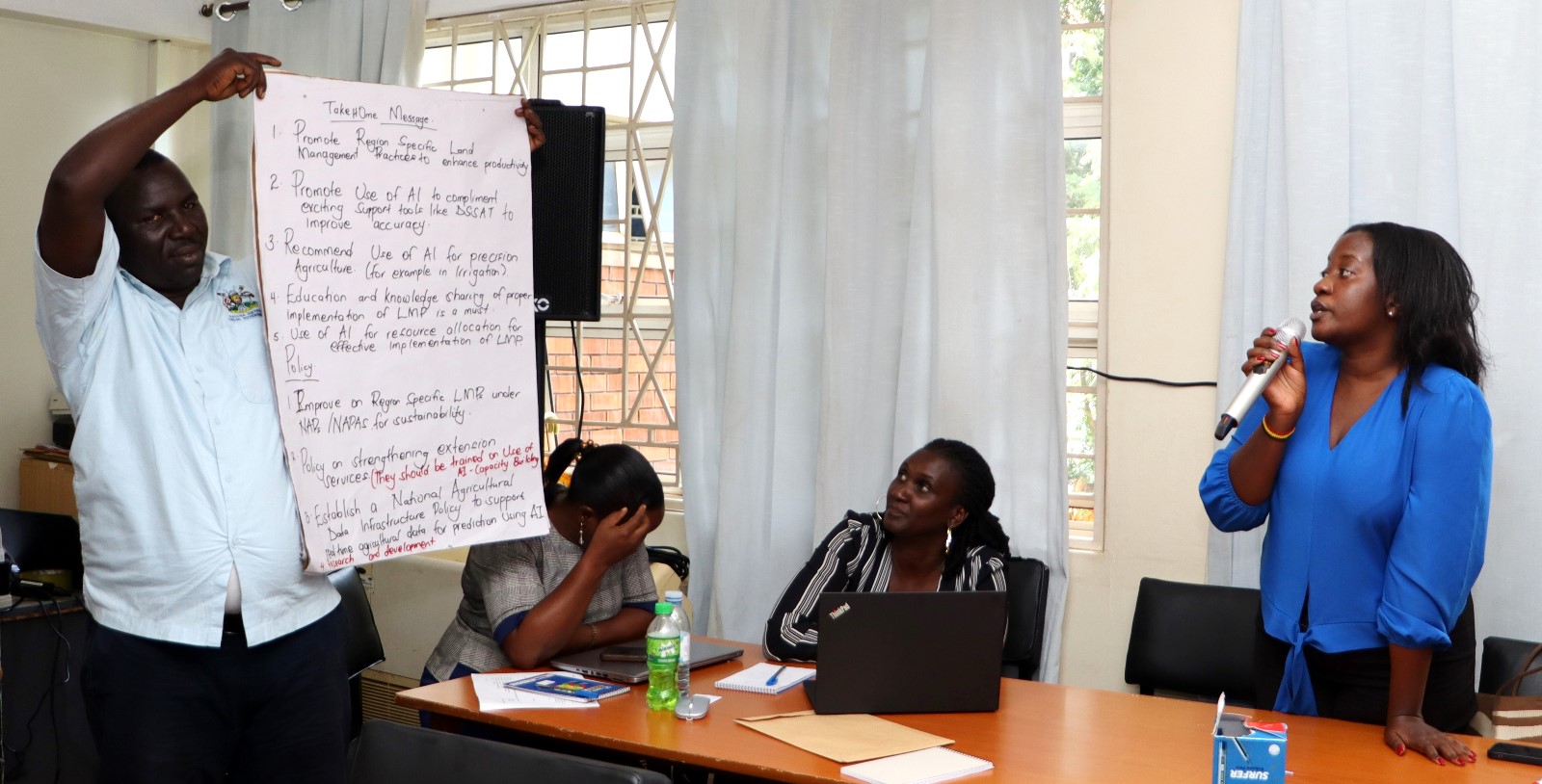
You may like
-


Press Statement: Makerere University Congratulates Former Staff and Students on Successful Election to Public Office
-


Mak Hosts NCHE Competence-Based Education Standards Validation Meeting
-
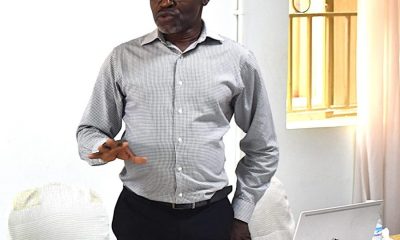

Enhancing Data Quality: NutriFishPlus Research Assistants Retooled Ahead of Baseline Survey
-
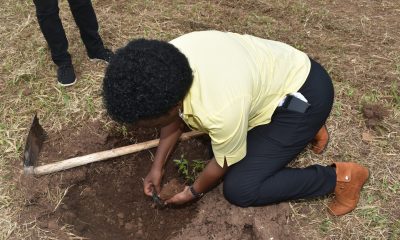

Call for Applications: QCF Postdoctoral Research Fellowships
-


Call For Applications: Annual Innovation Commercialisation Award
-
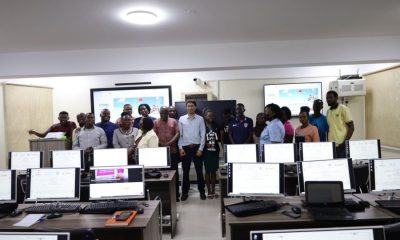

CoCIS CIPSD Short Courses Jan-Mar 2026
Agriculture & Environment
Call for Applications: QCF Postdoctoral Research Fellowships
Published
1 week agoon
January 20, 2026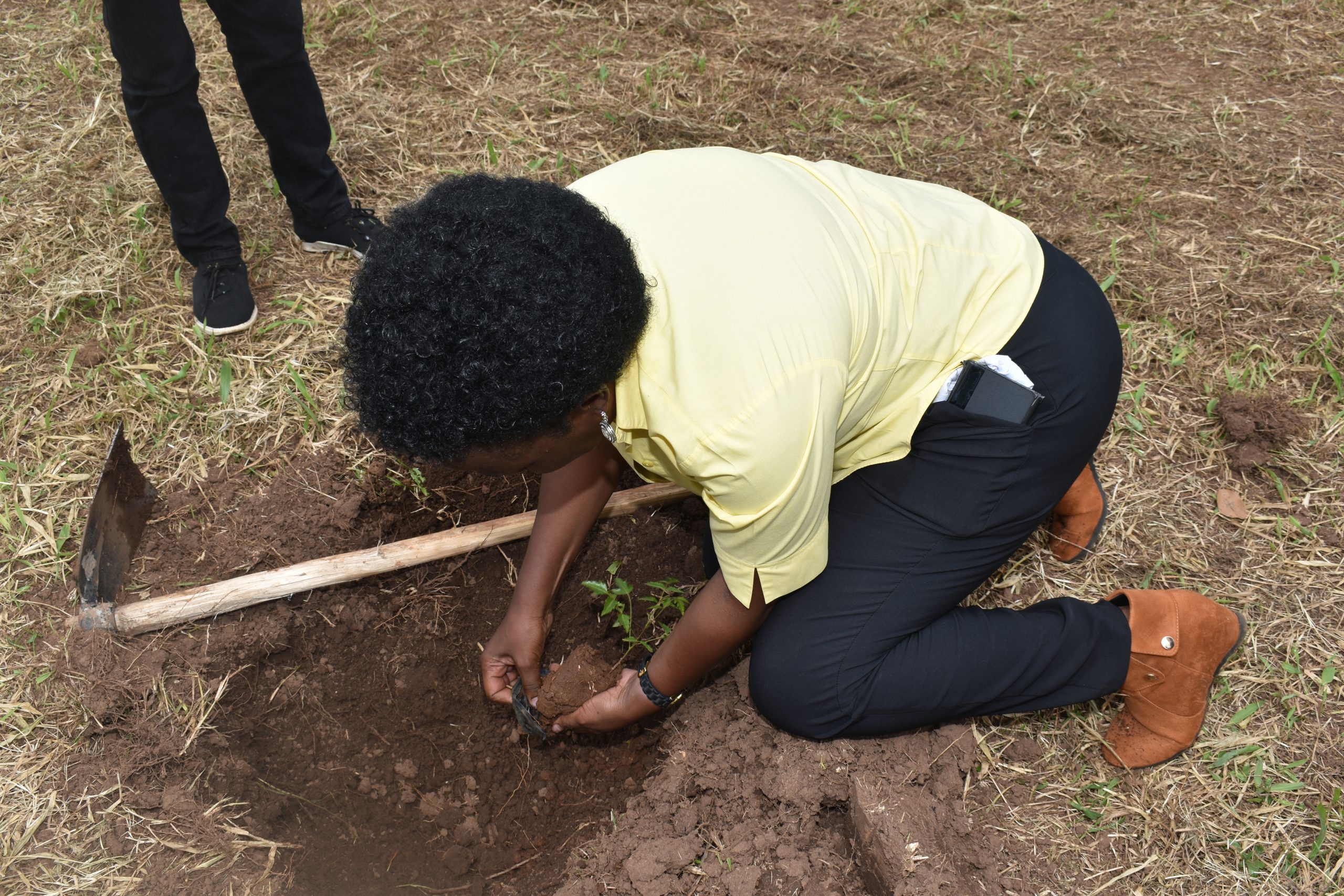
Makerere University’s Department of Geography, Geo-informatics and Climatic Sciences in partnership with Quadrature Climate Foundation and Red Cross Red Crescent Climate Centre are seeking two fellows for Quadrature Climate Foundation (QCF) Fellowship Programme. This is a two-year post-doctoral programme fully funded by QCF, which is an independent charitable foundation working for a greener and fairer future. Applications for the two-year post-doctoral fellowship are invited from individuals with demonstrated interest and expertise in locally led adaptation to climate change research. This initiative is a unique and excellent opportunity to expand the network of interested individuals with researchers and decision-makers, as well as deliver action-oriented research to inform policy and practice. Depending on their interest, each applicant should choose one of the two thematic areas offered under the fellowship program:
- Knowledge co-creation for locally led adaptation to climate change
- Decentralised decision making for effective climate change adaptation and resilience
The Fellow working on the Thematic Area 1: knowledge co-creation for locally adaptation will explore collaborative learning processes (including informal learning) for climate change adaptation among smallholder farmers with focus on Uganda, with linkages to related work in Bangladesh, Mozambique and Nepal. The overall intention is to generate understanding of how decision making processes, across scales, can be linked to local and context specific knowledge systems and process for epistemic just adaptation. The key research questions are:
- What does the process of co-creating knowledge for locally led climate change adaptation look like in a rural smallholder farming setting of a Least Developed Country (LDC)?
- What are the possibilities, promises and pitfalls of knowledge co-creation for locally led adaptation planning?
The research will intentionally contribute to methodological and practice advances in co-creation of knowledge for locally led climate change adaptation.
The research on Thematic Area 2: decentralised decision making for effective adaptation and resilience will undertake scientific interrogation of a climate finance mechanism that has been designed for locally led adaptation and resilience in Uganda. The Fellow will largely focus on testing selected assumptions behind the design of the mechanism. The key questions are:
- How does effective locally led climate change adaptation and resilience building investment decision making look like in practice?
- What works and how does it work? What does not work and why?
Key considerations in the research will include local leadership, inclusion, context specificity, cross-scale, and capability strengthening. The targeted contributions of the fellowship include improved knowledge management for climate resilience planning and decision-making, strengthened evidence-based research-policy-practice dialogues, framework(s) for integrating local and experiential knowledges in resilience building investment decision making processes, among others.
The Fellows will be based, full-time, at Makerere University, Kampala as a core member of the team working on locally led adaptation and resilience. Their work will be conducted under the auspices of the Least Developed Countries Universities Consortium on Climate Change (LUCCC) through which Makerere University is engaged in research and knowledge management collaborations. The Fellowships will focus on Uganda, but with deliberate linkages across LDCs, which might necessitate travels for in-person working meetings.
Roles and responsibilities of the Postdoctoral Research Fellow
The Fellow will be highly motivated to work with a transdisciplinary research team, grow their research expertise, engage with climate change researchers, decision-makers, practitioners and generate different categories of publications. Makerere University will appoint a locally based mentor to the Fellow to provide professional development support. Where needed, the Fellow will participate in teaching and community outreach activities including knowledge sharing in ways that foster collaborative research for adaptation policy and practice.
Requirements:
- A PhD, awarded within the previous three years, in a related discipline (e.g., geography, climate and society, sustainability, adaptation governance, epistemic justice, climate finance).
- Knowledge and experience of locally led adaptation in the agriculture sector.
- Experience in synthesizing and managing datasets and literature.
- Experience in, and knowledgeable of, participatory and collaborative action-oriented research methodologies and tools.
- Demonstrated ability to produce research information products for different audiences.
- Excellent written and verbal communication skills in English
- Demonstrated interest and experience in transdisciplinary collaborations across-scales including with local communities, decision-makers and practitioners in LDCs
- Experience in giving international oral presentations and interest in public communication for wide-ranging categories of audiences
- Data and information visualisation skills will be an added advantage
Application requirements:
Applicants should submit a single PDF with: (i) an application letter not longer than 2 pages that includes indication of theme of interest, a description of research interests, research expertise, and an explanation of how they can work as part of the transdisciplinary research team in line with the fellowship objectives described above; (ii) a CV including a publication list; (iii) copies of academic transcripts and/or certificates; (iv) an example of written work; (v) email addresses of two references who have been directly involved in their PhD research.
Applicants must submit the PDF application document to colocal.caes@mak.ac.ug. Please type “LUCCC PDR Application: COLOCAL-Makerere” as the subject line of the email.
Closing date
Midnight (GMT+3) on 27th February, 2026 or until the position is filled.
Selection process
Eligible and complete applications will be considered followed by communication with short-listed applicants. Makerere University, in consultation with Quadrature Climate Foundation and the Red Cross Red Crescent Climate Centre, will conduct interviews of the short-listed applicants.
If you have not heard from Makerere University within two months of the deadline, please assume your application has been unsuccessful.
Contact details for enquiries about this post-doc fellowship: colocal.caes@mak.ac.ug
Makerere University reserves the right to
- Disqualify ineligible, incomplete and/or inappropriate applications;
- Change the conditions of the award or to make no awards at all
-The QCF Fellowship Programme is a two-year, post-doctoral programme fully funded by Quadrature Climate Foundation (QCF).
-Quadrature Climate Foundation is an independent charitable foundation working for a greener and fairer future. For more information on QCF, please visit qc.foundation.
Agriculture & Environment
Mak-CAES Trains Small-Scale Processors on Soybean Value Addition & Product Development
Published
2 months agoon
December 16, 2025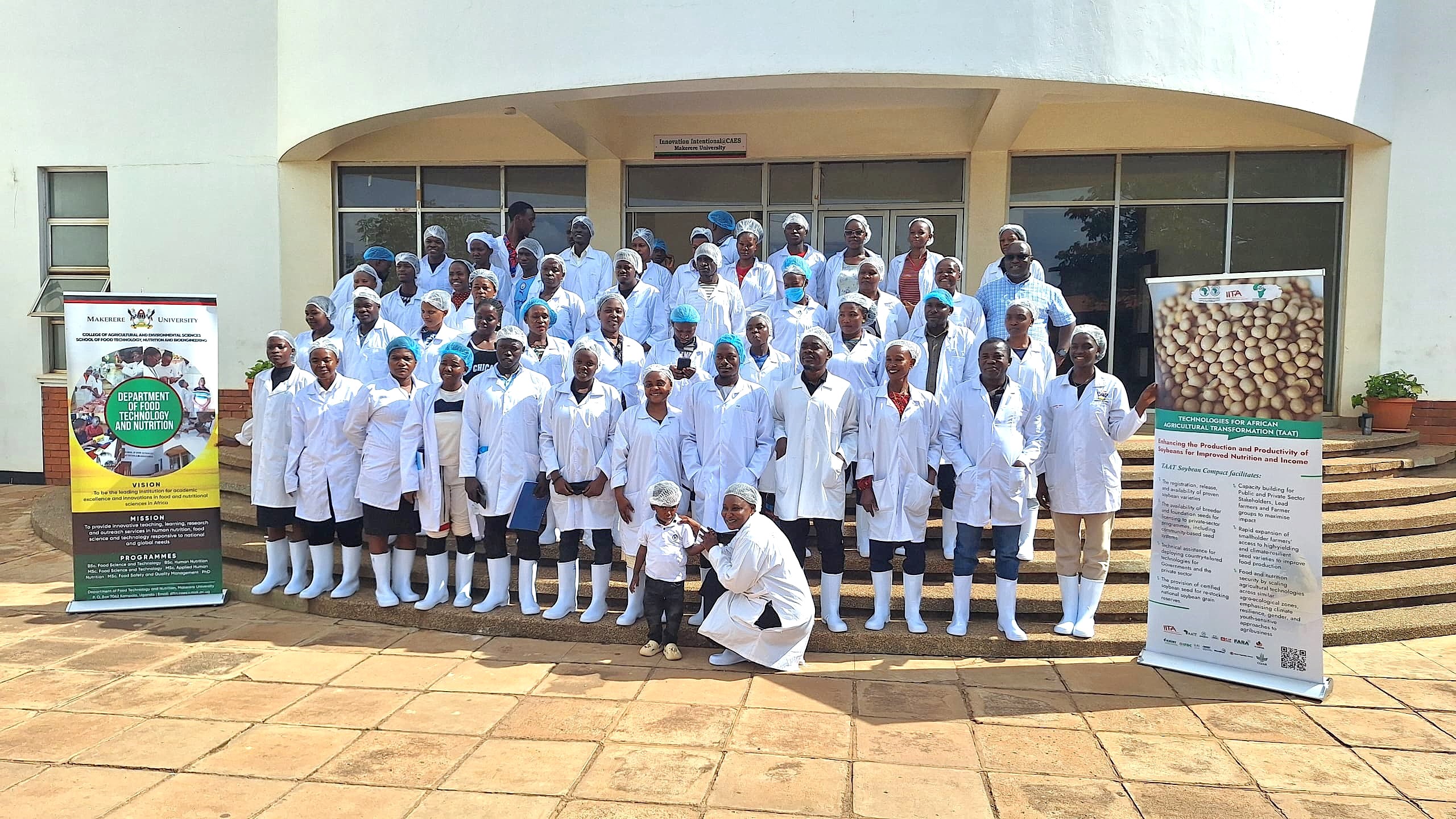
The Department of Food Technology and Nutrition (DFTN), Makerere University, in collaboration with Smart Foods Uganda Ltd, successfully conducted a five-day intensive training on soybean value addition and product development from 24th to 28th November 2025. The training was implemented with support from IITA Uganda under the Training for African Agricultural Transformation (TAAT) Soy Compact Project, aimed at strengthening agro-processing capacities and promoting soybean utilization for improved nutrition and livelihoods.
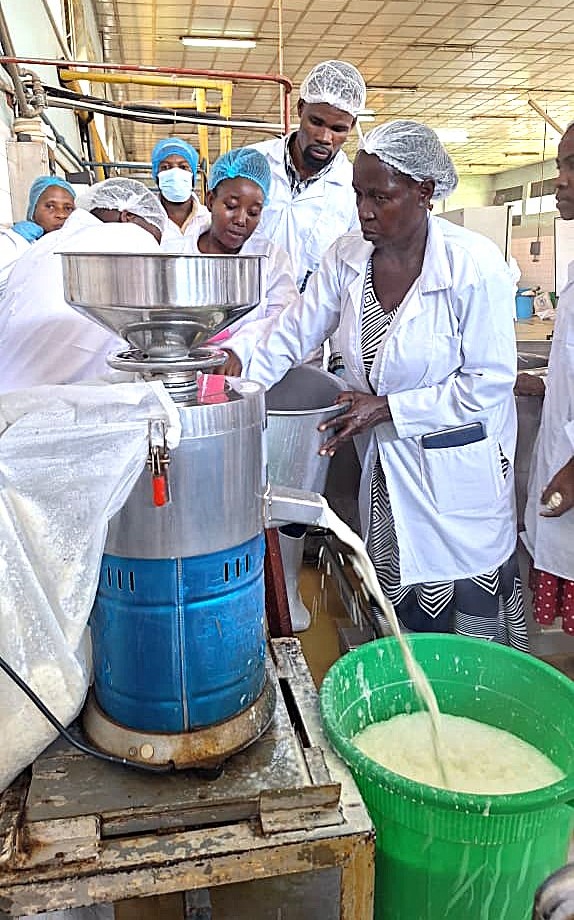
The training program was highly practical and skills-oriented, featuring extensive hands-on sessions designed to equip participants with applicable processing and product development competencies. Most of the practical activities were hosted at Makerere University’s Food Technology and Business Incubation Centre (FTBIC). Participants also benefited from an industry exposure and experiential learning session at Smart Foods Uganda Ltd in Bweyogerere, where they gained first-hand insights into commercial-scale soybean processing operations, quality control systems, and product marketing strategies.

Key thematic areas and technologies covered during the training included soybean nutrition and associated health benefits; assessment of quality attributes of soybeans and soy-based products; application of Good Hygiene Practices (GHP) and Good Manufacturing Practices (GMP); and processing of high-quality soy products. Practical sessions focused on the production of soymilk, tofu, soy yoghurt, soy flour, and soy coffee, as well as the formulation of soy-fortified composite porridge flours. Participants were also trained in the development of various soy-based bakery products, including bread, mandazi, daddies, and baghia. In addition, sessions on marketing, branding and positioning of soy products, as well as UNBS certification requirements and documentation, were conducted to enhance market readiness and regulatory compliance.
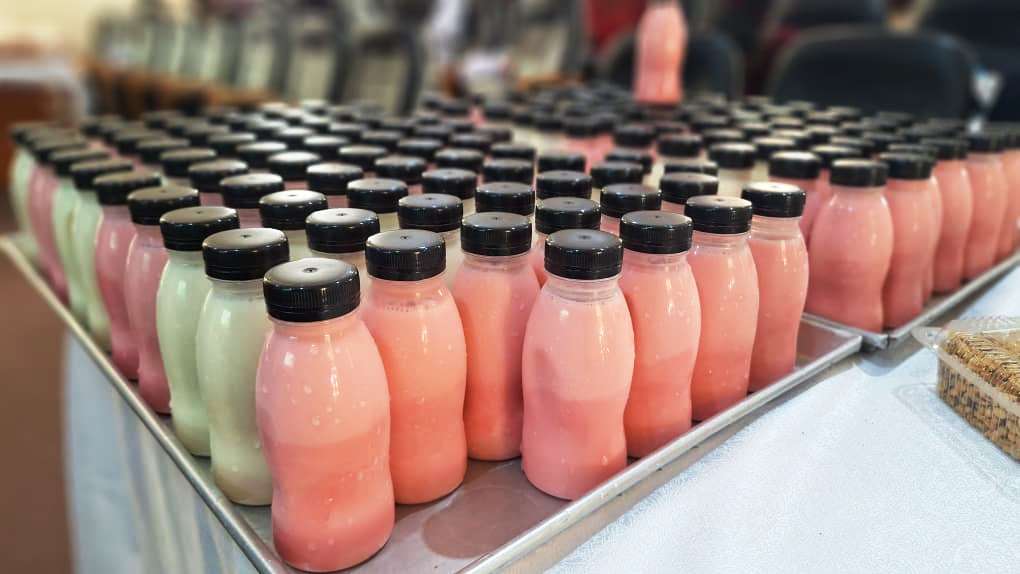
The training attracted a total of 57 participants, comprising small-scale soybean processors and graduating university students, thereby fostering knowledge exchange between academia and industry. Overall, the training contributed significantly to building technical capacity in soybean value addition, promoting entrepreneurship, and supporting the development of nutritious, market-oriented soy-based products in Uganda. The School of Food Technology, Nutrition, and Bioengineering, under the leadership of Dr. Julia Kigozi (Dean), conducts periodical trainings for agro-processors across the country to enhance technical capacity, improve product quality, and promote the adoption of modern, safe, and sustainable food processing practices. These trainings are designed to equip agro-processors with practical skills in food safety, quality assurance, value addition, post-harvest handling, nutrition, and bioengineering innovations, thereby enabling them to meet national and international standards. Through this outreach, the School contributes to strengthening agro-industrial development, reducing post-harvest losses, supporting entrepreneurship, and improving food and nutrition security while fostering stronger linkages between academia, industry, and communities.
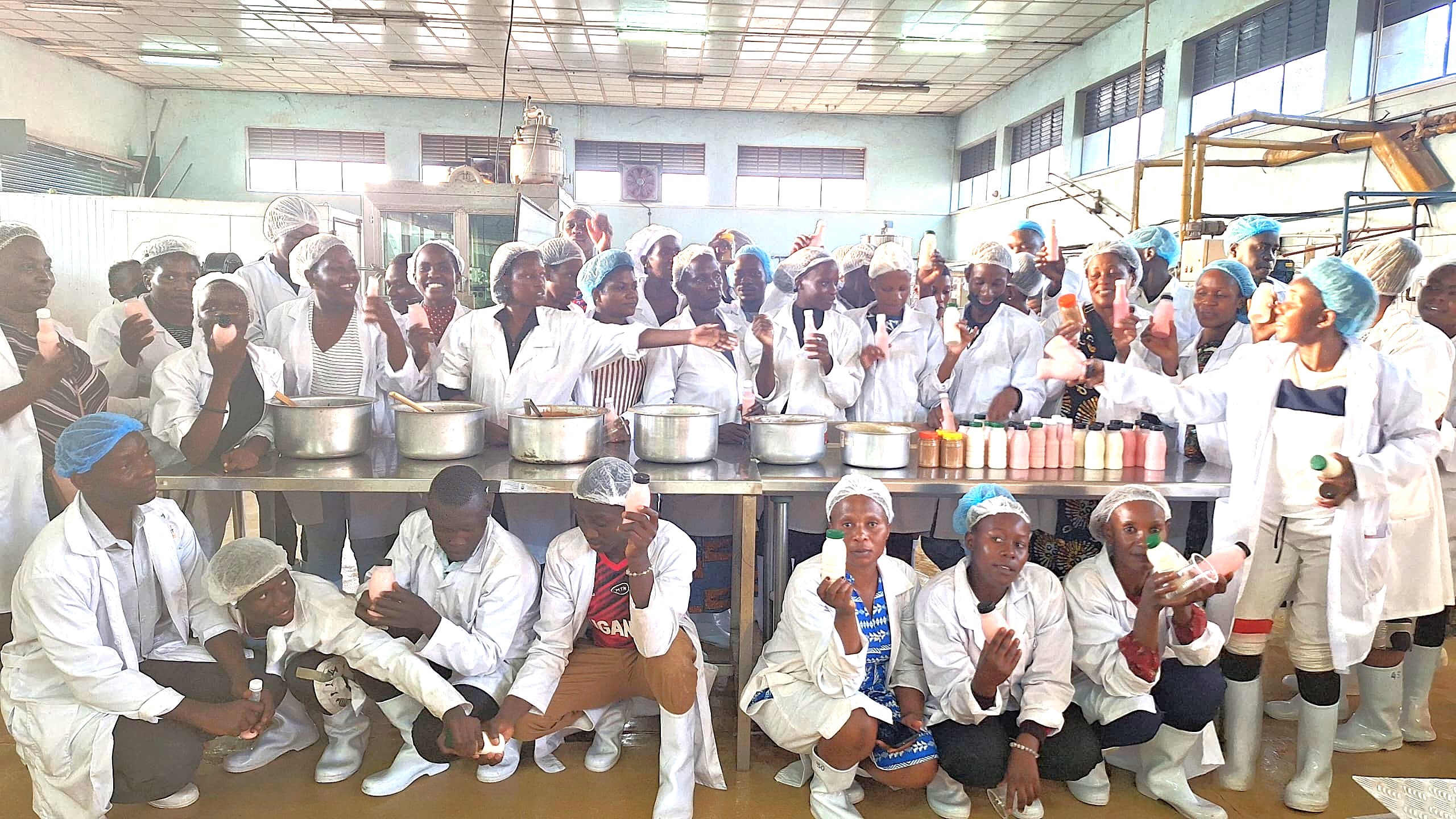
Agriculture & Environment
Department of Tourism Hosts Prof. Sofia Asonitou
Published
2 months agoon
December 12, 2025By
Mak Editor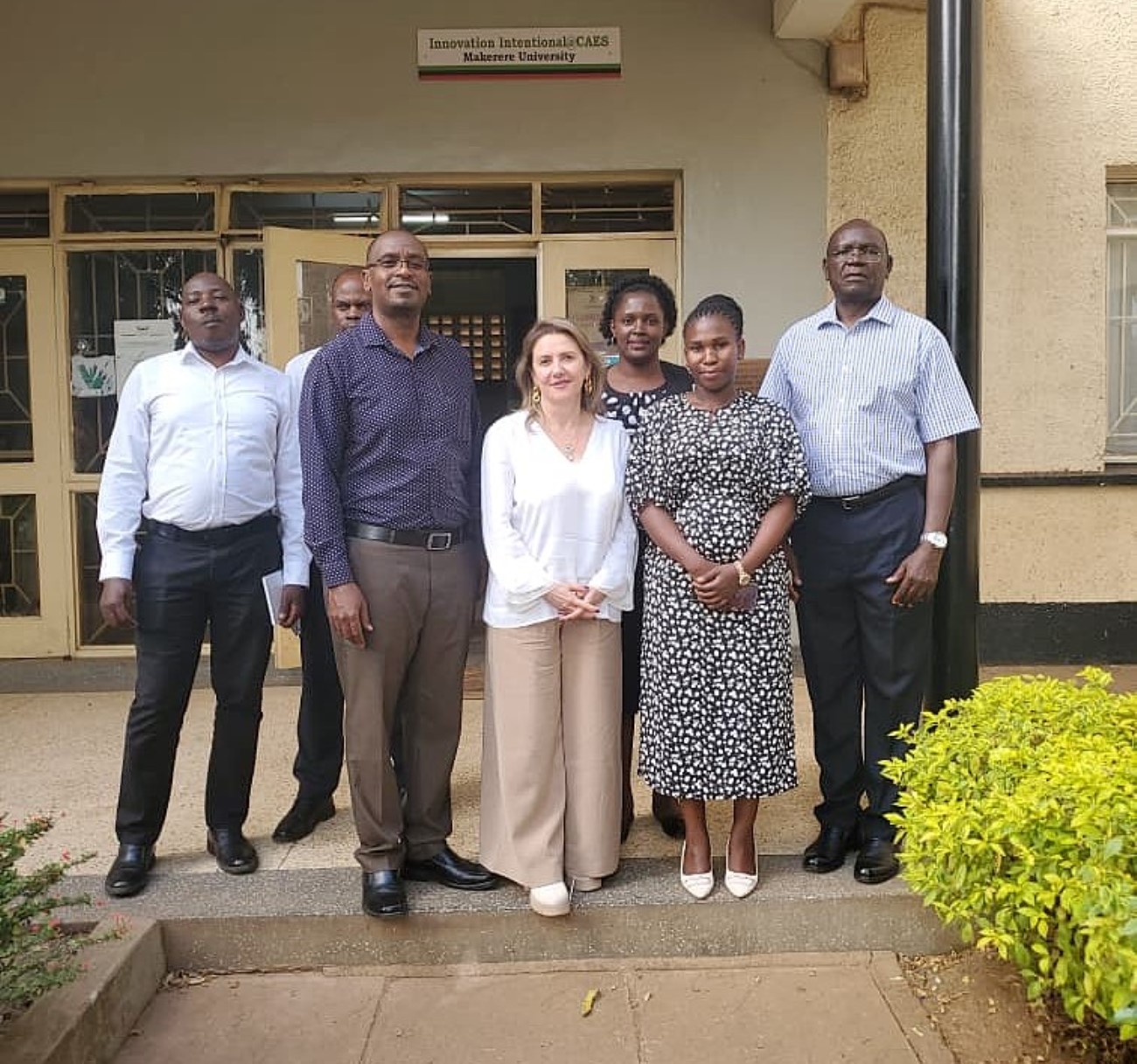
The Department of Tourism at the College of Agricultural and Environmental Sciences (CAES) on Thursday, 11 December 2025, hosted Prof. Sofia Asonitou from the University of West Attica, Greece. Prof. Asonitou serves as the Regional Coordinator for the Sub-Saharan Africa region under the Erasmus+ International Credit Mobility (ICM) framework at her institution.
During her engagement with the Department team led by Prof. Jim Ayorekire, deliberations centred on strengthening avenues for international academic cooperation.

The meeting highlighted several key areas of collaboration, including the initiation of student and staff exchanges under the Erasmus+ mobility program and capacity building in tourism governance. The team also explored the development of a joint masters degree program and the design of micro-credit courses aimed at addressing emerging skills gaps within the tourism sector.
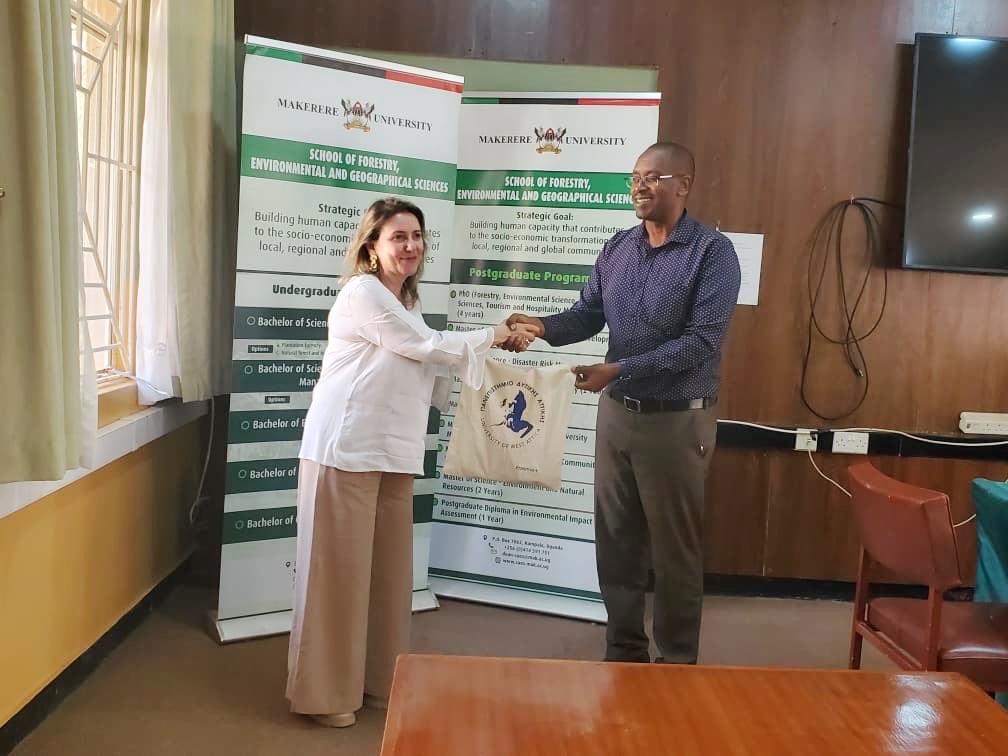
Prof. Asonitou’s visit marked an important step toward deepening institutional partnerships and enhancing the global outlook of tourism education and research within CAES.
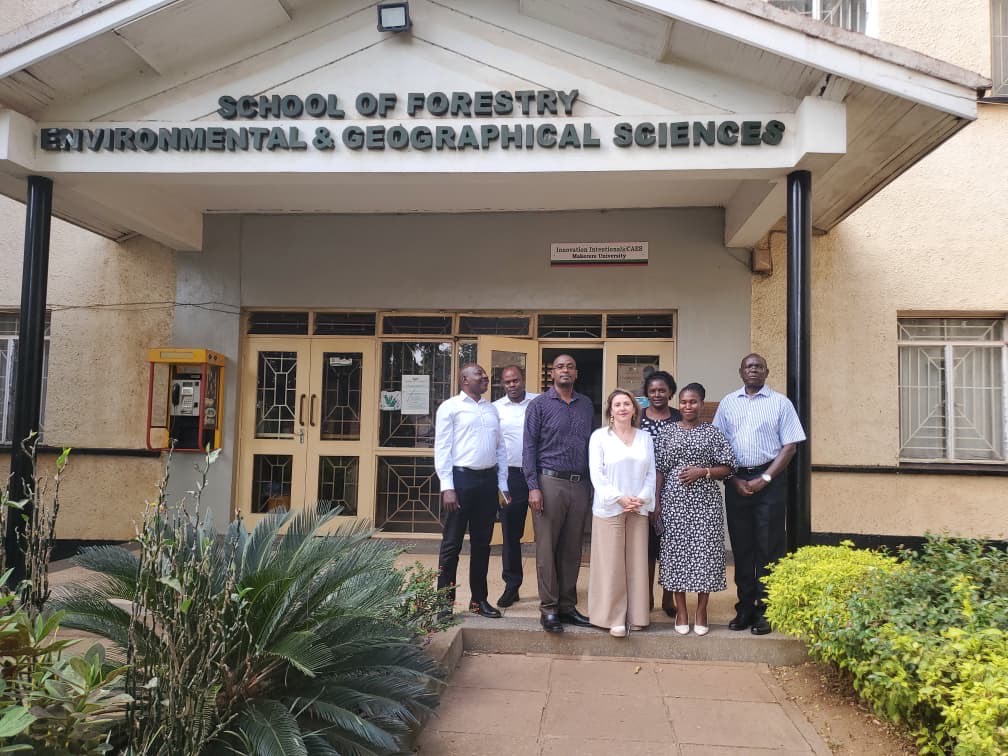
The Department of Tourism, which was carved out of the former Department of Forestry, Biodiversity, and Tourism, now operates as an independent academic unit offering a diverse and comprehensive range of programmes. The programmes are designed to equip students with the knowledge, skills, and practical experience necessary to thrive in various sectors of the tourism industry, including sustainable tourism development, hospitality management, and eco-tourism.
Trending
-

 General2 weeks ago
General2 weeks agoPress Release: Semester II Set to Start 10th Feb, 76th Graduation Dates Confirmed
-

 General3 days ago
General3 days agoPress Statement: Makerere University Congratulates Former Staff and Students on Successful Election to Public Office
-

 Innovation2 weeks ago
Innovation2 weeks agoCall For Applications: Annual Innovation Commercialisation Award
-

 General2 days ago
General2 days agoPress Statement: Makerere 76th Graduation Ceremony
-

 Computing & IS2 weeks ago
Computing & IS2 weeks agoCoCIS CIPSD Short Courses Jan-Mar 2026
